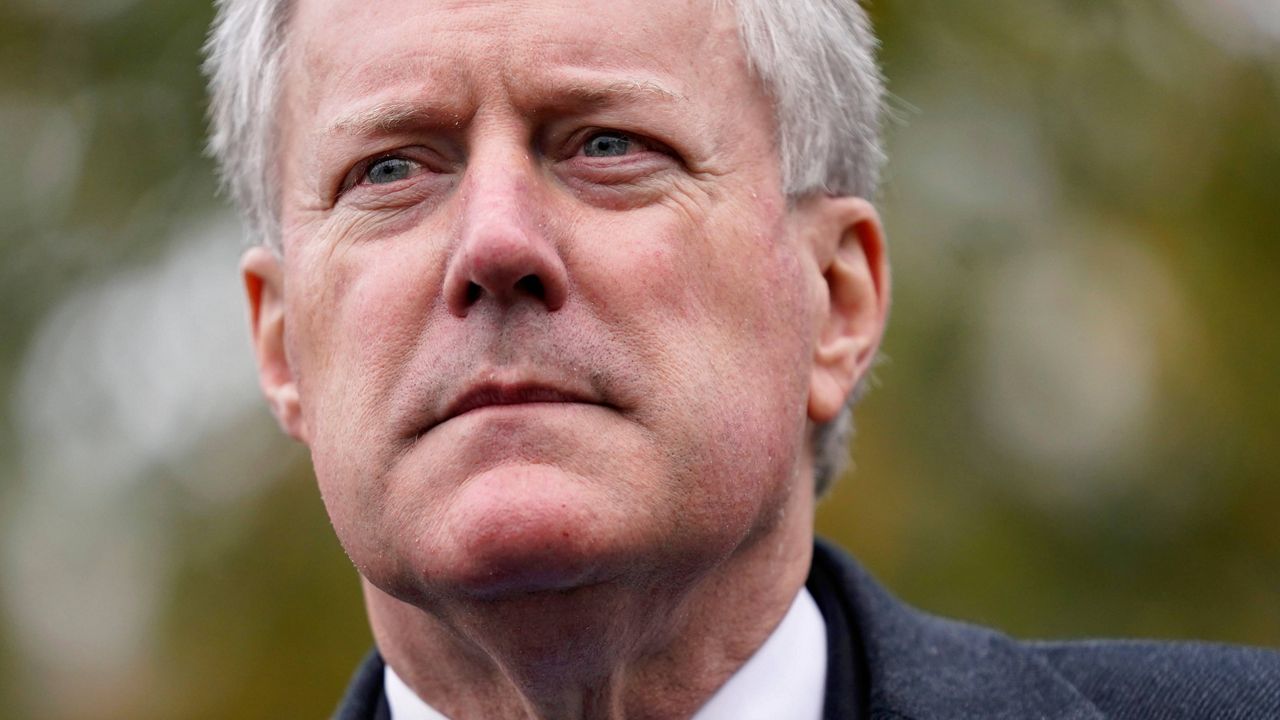In an abrupt reversal, an attorney for former President Donald Trump's chief of staff Mark Meadows said his client will not cooperate with a House committee investigating the Jan. 6 Capitol insurrection, citing a breakdown in negotiations with the panel.
What You Need To Know
- An attorney for former President Donald Trump's chief of staff Mark Meadows says Meadows will not cooperate with a House committee investigating the Jan. 6 Capitol insurrection, citing a breakdown in negotiations with the panel
- Attorney George Terwilliger said in a letter Tuesday that a deposition would be "untenable" because the Jan. 6 panel "has no intention of respecting boundaries" concerning questions that former President Donald Trump has claimed are off-limits because of executive privilege
- Mississippi Rep. Bennie Thompson, the Jan. 6 panel's chair, and Wyoming Rep. Liz Cheney, the panel's vice chair, said that Wednesday's deposition will go on as planned – and Meadows' failure to attend could result in a referral for criminal contempt
- Meadows' reversal comes as Meadows' new book, released Tuesday, revealed that Trump received a positive COVID-19 test before a presidential debate and was far sicker than the White House revealed at the time
Attorney George Terwilliger said in a letter Tuesday that a deposition would be "untenable" because the Jan. 6 panel "has no intention of respecting boundaries" concerning questions that former President Donald Trump has claimed are off-limits because of executive privilege. Terwilliger also said that he learned over the weekend that the committee had issued a subpoena to a third-party communications provider that he said would include "intensely personal" information.
Terwilliger said in a statement last week that he was con tinuing to work with the committee and its staff on a potential accommodation that would not require Meadows to waive the executive privileges claimed by Trump or "forfeit the long-standing position that senior White House aides cannot be compelled to testify" before Congress.
"We appreciate the Select Committee's openness to receiving voluntary responses on non-privileged topics," he said then.
Breaking their silence Tuesday afternoon, Mississippi Rep. Bennie Thompson, the panel's chair, and Wyoming Rep. Liz Cheney, the panel's vice chair, said that Wednesday's deposition will go on as planned – and Meadows' failure to attend could result in a referral for criminal contempt.
"Mark Meadows has informed the Select Committee that he does not intend to cooperate further despite his apparent willingness to provide details about the January 6th attack, including conversations with President Trump, in the book he is now promoting and selling," the two lawmakers wrote in a joint statement.
"The Select Committee has numerous questions for Mr. Meadows about records he has turned over to the Committee with no claim of privilege, which include real-time communications with many individuals as the events of January 6th unfolded," they continued.
"Tomorrow’s deposition will go forward as planned," the lawmakers concluded. "If indeed Mr. Meadows refuses to appear, the Select Committee will be left no choice but to advance contempt proceedings and recommend that the body in which Meadows once served refer him for criminal prosecution.
In halting cooperation, Terwilliger also cited comments from Thompson that he said unfairly cast aspersions on witnesses who invoke their Fifth Amendment right against self-incrimination. A separate witness, former Justice Department official Jeffrey Clark, has said he will invoke those Fifth Amendment rights.
"As a result of careful and deliberate consideration of these factors, we now must decline the opportunity to appear voluntarily for a deposition," Terwilliger wrote in the letter.
Terwilliger argued in his letter that Meadows’ subpoena is invalid because the investigation has no “legitimate legislative purpose.”
"Congress has no authority to conduct law enforcement investigations or free-standing 'fact finding' missions,” he wrote.
Committee members have previously said their investigation could very well lead to proposed legislation, including strengthening guardrails aimed at preventing individuals from pressuring elections and law enforcement officials and lawmakers into overturning election results.
The reversal comes as Meadows has been receiving attention for a new book, released Tuesday, which revealed that Trump received a positive COVID-19 test before a presidential debate and was far sicker than the White House revealed at the time.
Trump — who told his supporters to "fight like hell" before hundreds of his supporters broke into the Capitol and stopped the presidential electoral count — has attempted to hinder much of the committee's work, including in an ongoing court case, by arguing that Congress cannot obtain information about his private White House conversations.
Spectrum News has reached out Terwilliger for comment.



